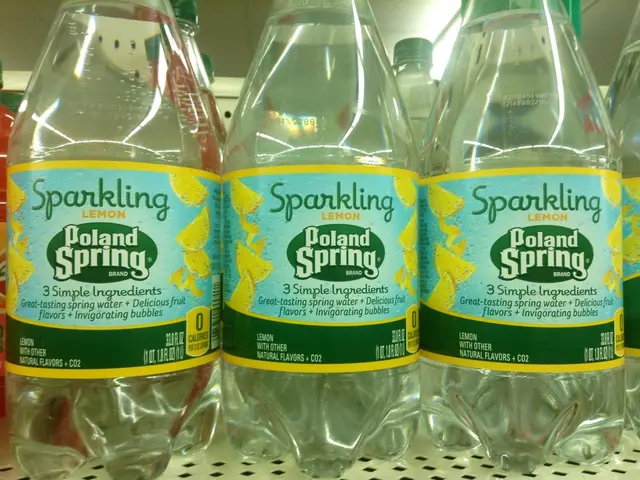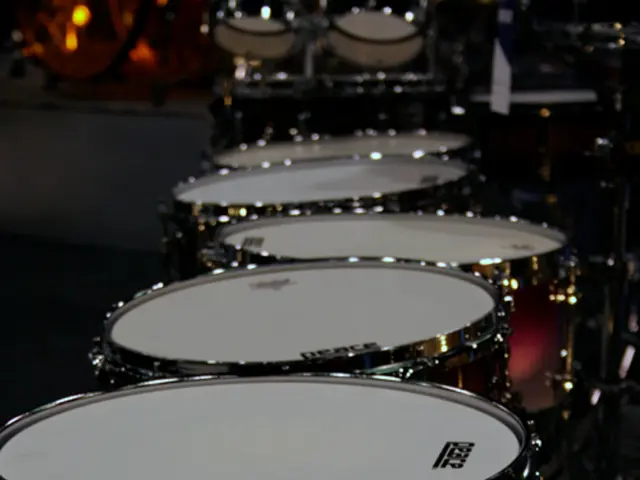Non-Prescription Erectile Dysfunction Treatments: Options to Viagra
In the realm of men's health, erectile dysfunction (ED) is a common concern for many. While prescription medications like Viagra and Cialis are popular solutions, over-the-counter (OTC) supplements have gained popularity due to their alleged ability to produce effects similar to these drugs. However, it is crucial to approach these supplements with caution, as their efficacy and safety can vary significantly.
One such OTC supplement is Dehydroepiandrosterone (DHEA), a natural hormone converted by the body into testosterone and estrogen. Some studies suggest that men with low DHEA levels may be more likely to experience ED, and supplementation could potentially improve erection ability. However, it's worth noting that the clinical evidence supporting DHEA's efficacy in treating ED is not conclusive.
Another common OTC supplement is Propionyl-L-carnitine, an amino acid supplement that can improve blood circulation and testosterone levels in older men, potentially alleviating ED symptoms, especially when related to conditions like diabetes or chronic fatigue.
Herbal supplements, such as ginkgo biloba, Rhodiola rosea, maca, ashwagandha, and Epimedium (Horny Goat Weed), are also popular choices. These herbs are used to boost libido, improve blood flow, and enhance erectile function naturally, without the side effects common in prescription ED drugs. However, a 2021 review found that ginseng, a popular herbal remedy, had a trivial effect on ED compared to placebos.
L-arginine and red ginseng are other OTC supplements with some evidence supporting their use for ED. They work by increasing nitric oxide levels, which help relax penile muscles and improve blood flow. However, it's important to note that the safety and efficacy of these supplements can vary, and they should not be used as a replacement for medical advice.
OTC ED pills, also known as nonprescription ED medications, are not regulated by the Food and Drug Administration (FDA) for their safety or effectiveness. This lack of regulation can lead to dangerously different levels of active ingredients in the same product. Furthermore, some OTC ED pills may contain active ingredients found in prescription drugs, but not at safe levels.
The FDA warns that these products may contain undisclosed active drugs, as a 2022 study found that 3 out of the 12 herbal ED products investigated contained undisclosed sildenafil. This underscores the importance of consulting a healthcare professional before starting any OTC treatment for ED.
While OTC supplements may offer some potential benefits, it is essential to remember that they are not a substitute for proper medical advice. Lifestyle measures, such as quitting smoking, increasing physical activity, maintaining a balanced, nutritious diet, limiting alcohol use, and managing chronic conditions, are typically the first step in treating ED.
For those seeking FDA-approved treatments, prescription PDE5 inhibitors like Viagra, Cialis, and their generic versions are the best option. In the United States, Viagra (sildenafil) is only available via prescription.
In conclusion, while OTC supplements such as DHEA, Propionyl-L-carnitine, various herbal extracts, L-arginine, and red ginseng may show promise, their efficacy and safety vary widely. It is always recommended to consult a healthcare professional before starting any OTC treatment for ED to ensure proper diagnosis and safe management of the condition.
- Some studies suggest that Dehydroepiandrosterone (DHEA), an OTC supplement, may potentially improve erection ability in men with low DHEA levels, though the clinical evidence supporting its efficacy is not conclusive.
- Propionyl-L-carnitine, another OTC supplement, can improve blood circulation and testosterone levels in older men, potentially alleviating ED symptoms, especially when related to conditions like diabetes or chronic fatigue.
- Herbal supplements like ginkgo biloba, Rhodiola rosea, maca, ashwagandha, Epimedium (Horny Goat Weed), and others, are popular choices for boosting libido, improving blood flow, and enhancing erectile function naturally.
- L-arginine and red ginseng are OTC supplements with some evidence supporting their use for ED as they increase nitric oxide levels, which help relax penile muscles and improve blood flow.
- It's important to note that OTC ED pills, not regulated by the Food and Drug Administration (FDA) for their safety or effectiveness, can contain undisclosed active drugs and potentially dangerous variations in active ingredients.
- Consulting a healthcare professional before starting any OTC treatment for ED is always recommended to ensure proper diagnosis and safe management of the condition, as lifestyle measures are typically the first step in treating ED.




